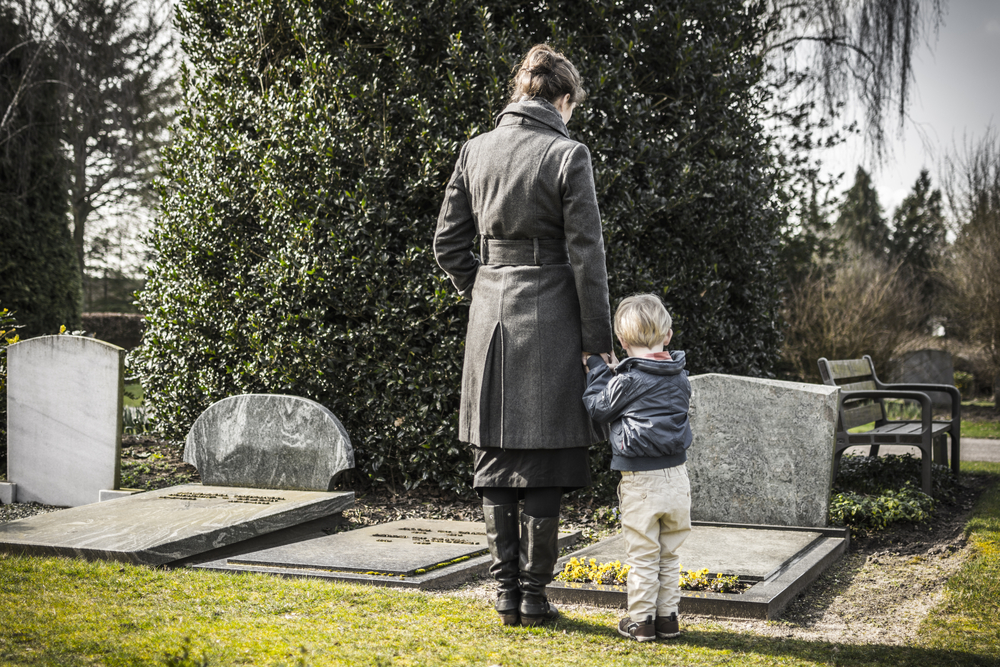
A Guide to Creating New Mourning Rituals
At Fox Monuments, crafting memorials that reflect legacies and honor faith is our contribution to Long Island’s Jewish community. Judaism is a faith rich with countless customs and traditions. Of course, there are numerous customs and traditions surrounding death and healing from it. Unfortunately, within the previous year honoring each of these traditions has been difficult. And with so many lives lost from COVID-19, it’s been doubly difficult for so many families.
However, with these restrictions came a certain amount of innovation. Obviously, we couldn’t gather in large numbers or visit many public spaces. Therefore, traditional rituals weren’t an option. As a result, countless families developed their own, personal mourning rituals to honor their loved ones. In this post, we’ll explore a guide to creating new mourning rituals that can provide closure and feel like a respectable tribute to those we’ve lost.
What Is a Ritual?
Obviously, this is the best place to start. Admittedly, this may seem like a pointless question to ask. However, knowing what you should strive towards is a great way to understand what to do. When it comes to saying a final goodbye, you can never put forth too much effort.
Rituals are actions done in significant ways that represent an ideal that’s much more than the act itself. Actions that symbolize ideas, thoughts, beliefs or metaphysical notions are legitimate rituals. Basically, they give a meaning to our actions. Also, they give us the feeling that we’re connected with something greater than ourselves.
Often, we perform rituals in an effort to obtain peace, clarity, meaning or to feel grounded. Sometimes, we perform rituals to connect to family or a specific individual, or culture, society, our ancestors or even ourselves.
Creating Your Own Ritual
We may create rituals for a number of reasons. But in this case, the goal is to create a ritual that allows you to process grief in a constructive, healthy way. Many decide to perform them on a birthday or anniversary significant to someone they’ve lost. On the other hand, some express grief in subtle, quieter rituals every day or week.
Of course, a mourning ritual should, in some way, reflect whoever you lost. Basically, this means you should include a symbol or memento with significance to them. Just like a headstone inscription, this will encourage the notion that you’re honoring them.
If you have any concerns about a ritual potentially violating your faith, consult your rabbi. However, typical mourning rituals have no blasphemous value and are simply a more personal means of saying goodbye to a loved one. In addition, they provide closure during a time when we can’t observe many normal traditions like Shiva.
Examples of Mourning Rituals
- Light a candle in their honor, perhaps on a certain date like Hanukkah. For example, a common ritual is to light candles at dinnertime to signify past meals shared.
- Create a scrapbook and actively work towards filling it with photos and mementos symbolizing their life.
- Recite poetry, important readings or song lyrics.
- Listen to their favorite songs regularly or create a mix of their favorite musicians.
- Watch their favorite movie or TV show.
- Plant a tree or flowers in their memory.
- Make a donation to their favorite charity in their name/memory.
- Create a work of art symbolic of their life.
Ultimately, there are no rules or restrictions when it comes to an effective mourning ritual. Of course, you know precisely what kind of actions will properly honor your loved one. It can be as simple or extravagant as you like, whatever feels most appropriate. Basically, if it feels like a legitimate way to honor them, then it most likely is. Do whatever feels right.
Conclusion – Fox Monuments
Without a doubt, the previous year was full of unique challenges and difficult circumstances. As a result, countless families were unable to honor lost loved ones in traditional ways. But with adversity comes innovation, and mourning rituals are an exceptional way to help us heal from the pain of loss.
At Fox Monuments, we’ll continue to support Long Island’s Jewish community throughout any future challenges. In addition, we’ll also keep creating memorials that are beautiful reflections of Jewish lives and legacies.
© 2024 Fox Memorials
Web Design & Development by Logic Web Media
